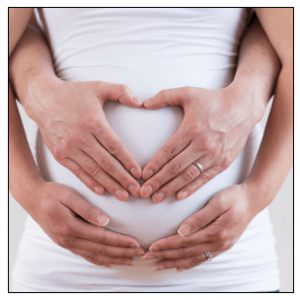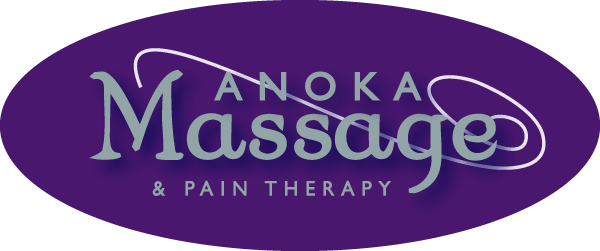The Most Shocking Meta-Study of Fertility Acupuncture in 2013. A growing number of new parents are telling their friends and families that acupuncture helped them conceive – after seemingly nothing else worked. Acupuncturists who specialize in reproductive medicine, providing acupuncture within a Western medical setting as an adjuvant to in-vitro fertilization, report success rates of 70% and higher among patients in their own clinics.
T his is greater than the success rate of IVF alone. However, a meta-analysis of a number of scientific studies on the efficacy of acupuncture as an adjuvant to IVF, published in the June 2013 issue of the Oxford Journal, found that acupuncture was ineffective for increasing the success rate of IVF.
his is greater than the success rate of IVF alone. However, a meta-analysis of a number of scientific studies on the efficacy of acupuncture as an adjuvant to IVF, published in the June 2013 issue of the Oxford Journal, found that acupuncture was ineffective for increasing the success rate of IVF.
In fact, the study’s authors went on to conclude that acupuncture actually decreased the success rate of IVF. Needless to say, the conclusions of this meta-analysis have come as a shock to all of us who have witnessed quite the opposite.
It makes you question why there is such a discrepancy between the success rates of controlled clinical trials and the reported success rates from patients?
Are the controlled clinical trials somehow fundamentally flawed?
These are the right questions to be asking.
Let’s take a look at the ways in which the effects of acupuncture on IVF are currently being quantified by researchers.
One often-cited study, published in Fertility and Sterility in March of 2009, utilizes the so-called Paulus protocol, which is usually described as PC-6, SP-8, Liv-3, DU-20, LI-4, and four specific auricular points needled 25 minutes before IVF, and ST-26, SP-10, SP-6, LI-4, and the same auricular points needled 25 minutes after IVF.
Half of the 150 patients received acupuncture, and half did not. All patients then completed a questionnaire about their anxiety and optimism. No difference was shown in the pregnancy rates between the two groups.
The most notable problem with this particular study is that there is no acknowledgement of pattern diagnosis. In addition, the study does not replicate what is generally done in a real clinical setting in which the patient receives acupuncture treatments for several weeks or even months to address the underlying issues that are causing the infertility. The patient may be advised to make new dietary choices in following a pre-natal fertility-promoting diet and possibly utilizing herbal medicine in addition to acupuncture according to tongue and pulse diagnosis.
Further investigation reveals that the study was funded by Organon USA, which is a pharmaceutical company that “favors the man-made over the organic approach to medicines,” and manufactures contraceptives, anesthetics, treatments for mental health disorders (Remeron), fertility (Follistim), and bladder cancer (Tice/BCG). The Most Shocking Meta-Study of Fertility Acupuncture in 2013. A growing number of new parents are telling their friends and families that acupuncture helped them conceive – after seemingly nothing else worked. Acupuncturists who specialize in reproductive medicine, providing acupuncture within a Western medical setting as an adjuvant to in-vitro fertilization, report success rates of 70% and higher among patients in their own clinics.
This is greater than the success rate of IVF alone. However, a meta-analysis of a number of scientific studies on the efficacy of acupuncture as an adjuvant to IVF, published in the June 2013 issue of the Oxford Journal, found that acupuncture was ineffective for increasing the success rate of IVF.
In fact, the study’s authors went on to conclude that acupuncture actually decreased the success rate of IVF. Needless to say, the conclusions of this meta-analysis have come as a shock to all of us who have witnessed quite the opposite.
It makes you question why there is such a discrepancy between the success rates of controlled clinical trials and the reported success rates from patients?
Are the controlled clinical trials somehow fundamentally flawed?
These are the right questions to be asking.
Let’s take a look at the ways in which the effects of acupuncture on IVF are currently being quantified by researchers.
One often-cited study, published in Fertility and Sterility in March of 2009, utilizes the so-called Paulus protocol, which is usually described as PC-6, SP-8, Liv-3, DU-20, LI-4, and four specific auricular points needled 25 minutes before IVF, and ST-26, SP-10, SP-6, LI-4, and the same auricular points needled 25 minutes after IVF.
Half of the 150 patients received acupuncture, and half did not. All patients then completed a questionnaire about their anxiety and optimism. No difference was shown in the pregnancy rates between the two groups.
The most notable problem with this particular study is that there is no acknowledgement of pattern diagnosis. In addition, the study does not replicate what is generally done in a real clinical setting in which the patient receives acupuncture treatments for several weeks or even months to address the underlying issues that are causing the infertility. The patient may be advised to make new dietary choices in following a pre-natal fertility-promoting diet and possibly utilizing herbal medicine in addition to acupuncture according to tongue and pulse diagnosis.
Further investigation reveals that the study was funded by Organon USA, which is a pharmaceutical company that “favors the man-made over the organic approach to medicines,” and manufactures contraceptives, anesthetics, treatments for mental health disorders (Remeron), fertility (Follistim), and bladder cancer (Tice/BCG).



